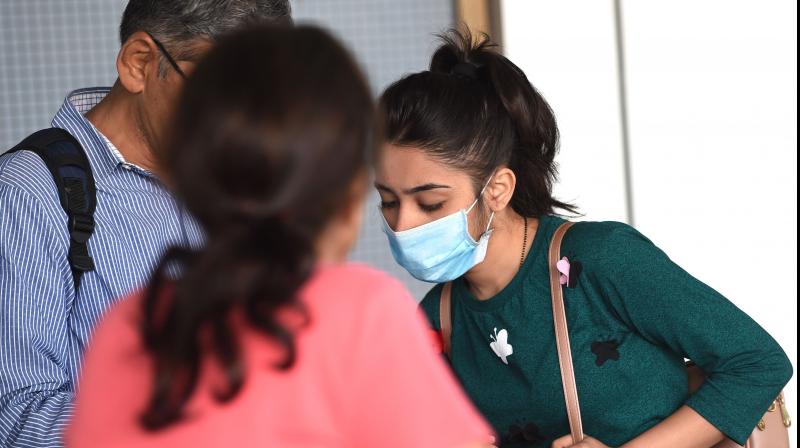Curbing Covid19 with all might, why it matters to India?
India is among the top 30 countries with the highest potential to get affected by this pandemic

Akin to our military and para-military forces, ‘Travel Security Force’ is the new terminology being implemented by National Agencies, Embassies and Authorities to tackle and keep Coronavirus off the country.
With the news of the first case of corona-virus breaking out in India a call of action at the community level has already taken place. A group of ministers (GoM) sat together on Monday soon after the news broke out. The health minister said that while the Indian government has already suspended travel to China and Iran it will be suspending more travel visas to eliminate the probability of the outbreak. The minister further advised that Indians avoid non-essential travels or meet people from the outside world and should avoid participation in events of mass gatherings to eliminate the exposure to the deadly virus.
The implementations by the Travel Security is vital and critical for India. As a country with impediments at every level we are not well prepared to tackle the epidemic of Coronavirus. When it comes to treating disease with mass proportions, we are archaic in terms of medical infrastructure, laboratory facilities and treatment and medicine accessibility.
When it comes to fighting Coronavirus, precaution is best cure for India.
Travel Security Forces across the World
83 countries and territories have imposed some form of travel restriction against China as of February 19. The various restrictions include:
Border closures: Partial or total closure of a land border with China; this includes Nepal, Bangladesh, Myanmar, Afghanistan and Indian territories
Entry or exit bans, restricting the ability of citizens or foreigners to depart and arrive from their country for travel to China after traveling from or transiting through China;
Visa restrictions, include total or partial visa suspensions or restrictions, such as halting visa-on-arrival programs, and
Flight suspensions, where governments have imposed bans on flights to or from China
Several countries are strictly monitoring this, as it is the first point of virus entry to their respective nations. High investment have been made to build infrastructure that will detect the virus infected suspects and their quarantine.
India’s medical infrastructure
China was highly praised by the WHO for its aggressive and quick approach to control 2019-nCoV. The country efficiently established a massive 645,000 sq. ft emergency hospital in the epicentre Wuhan within a span of mere 10 days. The two-storeyed hospital has 30 intensive care units (ICUs), over 1,000 beds and special corridors to restrict the patient-nurse contact. A second hospital is already in making. For India to build this infrastructure will take years to come up.
Critical cases who have viral pneumonia will require supportive intensive care, including mechanical ventilation. While the Hospitals in the metro cities can still provide this, small towns and rural areas in most states will be ill-equipped to provide care.
Our passive approach of medical infrastructure can be calculated by citing that in the year 2012, there was a proposal to set up 150 diagnostic and research laboratories equipped with virology-related expertise. Of these, only a mere 80 are operable now, and this number is far from adequate. These labs are stand alone and also not linked to the public health response system.
India is completely of the tasks when handling a mass emergency and pursuing its priority research. This is one of the reasons why the Nipah virus reported 17 lives in Kerala in 2018. The shortage of study and research on virology and taxonomy on native bats made it difficult to understand the potency of the virus. Kerala has learnt the lesson and already declared 2019-nCoV a state calamity and has kept over 2,000 people under surveillance.
A renowned school in Noida has been closed for three days already as the coronavirus scare spread a day after a student’s father was detected with the infection. The school is said to be undergoing fumigation and sanitisation to eliminate exposure.
Implications on India
If the virus does spreads in India in the same magnitude as in Wuhan, the impact on the economy, healthcare and public spirit could be calamitous. India has one of the world's highest population densities, especially when it comes to urban cities like Delhi and Mumbai.
WHO recommends maintaining a 3 feet distance between individuals but this will be impossible to achieve, nor will a lockdown of the entire city be possible such as in Wuhan. We expect a shortage of food and medicines, depression, even theft, panic and misinformation. There are already some media reports of families returning to China being 'shunned'. We don’t know the reality of it yet.
India is among the Top 30 countries with the highest potential to get affected by this pandemic. We cannot afford to have a situation where our already overloaded hospitals are unable to provide treatment to and fight this disease.
What we need to exercise is severe caution, awareness from credible sources and completely shutting away oneself from the events and occasions of mass gatherings. Participating in these will lead to exposure of contamination as the virus travels from one source to another and we never know that an affectionate or compassionate gesture may act as a catalyst to the spread.
The article is authored by Mr. Michael Song, Chairman Topline India, Marketing & PR consulting firm

